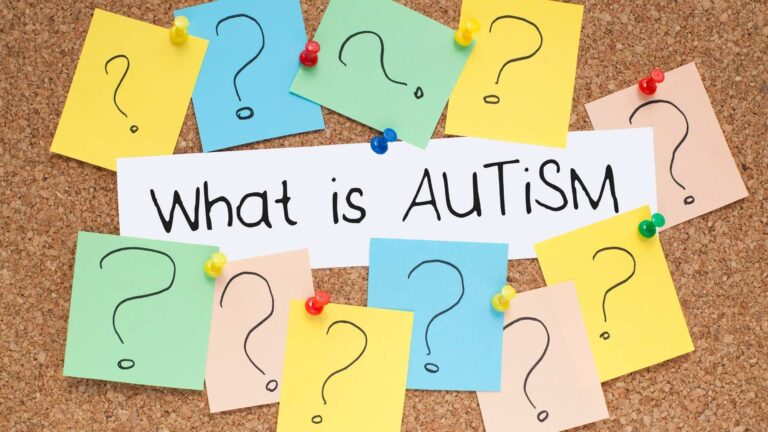Table of Contents
What do we celebrate on World Autism Day?
April 2 marks World Autism Awareness Day, a date dedicated to making visible the experiences, challenges, and rights of people on the autism spectrum. But, beyond commemoration, what do we celebrate on World Autism Day?
World Autism Day is a global initiative that invites communities, governments, and organizations to listen, learn, and act to build a more inclusive society. It reminds us that neurodiversity enriches the world and that every person on the spectrum deserves respect and support.
According to the World Health Organization, 1 in 100 children in the world is diagnosed with autism spectrum disorder (ASD), and considering the support needs of this population is vital to ensure access to appropriate diagnosis and intervention so that the community of people living with autism can successfully integrate into all spheres of society.
ABA Centers of Delaware joins the commemoration of World Autism Awareness Day by providing information on the impact of this day and how you can be a part of the change.
The Importance of World Autism Awareness Day
Autism is not a disease but a neurological condition that influences a person’s perception and interaction with the world. Despite the growing number of people on the spectrum, lack of information and stigmas continue to affect their quality of life and their families.
Although the understanding of autism has advanced significantly, there are still challenges, which has led organizations such as the United Nations to recognize the need to raise awareness at a global level. In this context, on December 18, 2007, the UN established April 2 as World Autism Awareness Day.

This date aims to debunk myths and promote a more inclusive society. Among the most common misconceptions is the belief that all people with autism possess extraordinary abilities, that they are unable to communicate, or that their condition requires “a cure.”
World Autism Awareness Day is a key opportunity to make this reality visible, promote access to resources and support, and highlight the capabilities and contributions of people on the spectrum. In addition, it supports political commitment and the allocation of resources to address the challenges associated with this condition.
Communities around the world are joining this cause through events, walks, and awareness campaigns. An emblematic symbol of the day is the blue lighting of iconic buildings such as the Eiffel Tower in Paris, the Empire State Building in New York, and the Sydney Opera House, reinforcing the message of acceptance, inclusion, and support.
Understanding the Challenges and Needs of the Autism Community

People with autism perceive and process the world in a different way than neurotypical people. ASD is a neurodevelopmental condition that influences communication, social interaction, and sensitivity to stimuli. Although the exact cause is still unknown, research links it to genetic, biological, and environmental factors.
People on the autism spectrum face challenges in various areas of daily life, such as education, employment, and socialization. Some of the most frequent barriers are:
- Lack of early diagnosis: Many families take years to receive a proper diagnosis due to a lack of information or access to specialists.
- Scarcity of educational resources: Most school systems are not prepared to meet the needs of children and young people with autism, which limits their academic and social development.
- Employment discrimination: Although many people with autism have valuable skills for the labor market, they often face preconceptions that make it difficult for them to access employment.
- Lack of understanding: Behaviors such as avoiding eye contact or being sensitive to certain stimuli are often misinterpreted and generate situations of exclusion.
How Can We Support World Autism Day?

Contributing to a more inclusive society does not require great efforts but small acts of empathy and commitment. On World Autism Awareness Day, some ways to support include:
- Read up on ASD: Reading and sharing reliable information helps to debunk myths and promote understanding about autism.
- Promote educational and labor inclusion: Support practices and policies that facilitate access to education and employment for people with autism.
- Listen to the autism community: Instead of taking on their needs, it is key to give a voice to those living on the spectrum and their families.
- Participate in awareness initiatives: Wear something blue or attend events organized by associations dedicated to autism.
This 2025 World Autism Awareness Day reminds us of the constant work of organizations, advocates, and families to improve the quality of life of people with ASD. Fortunately, the employment landscape is evolving, and there are more opportunities for people on the spectrum to showcase their talents and contribute to different sectors.
However, despite the progress, much remains to be done. Coverage of services for people with autism is still a challenge for many families, underscoring the importance of continuing to promote comprehensive support policies.
Although the commitment to inclusion must be daily, this day is a key opportunity to mobilize society and generate fundamental changes. Every action counts to build a world where all people, regardless of their neurodiversity, have the chance to develop fully.
ABA Centers of Delaware Joins World Autism Awareness Day
Autism Awareness Day is not just about a day on the calendar but an ongoing commitment to inclusion and respect. Every action counts, and together, we can build a world where neurodiversity is accepted and celebrated.
At ABA Centers of Delaware, we work every day to provide equal opportunities for children and adolescents with autism. With our diagnosis, early intervention, and ABA therapy services, we support the development and learning of individuals with ASD.
Today is a good time to learn, share, support, and reflect. What will you do to make the world a more inclusive place for people with autism? Call us at (844) 855-8517 or fill out our online form to learn more about our autism support services.








